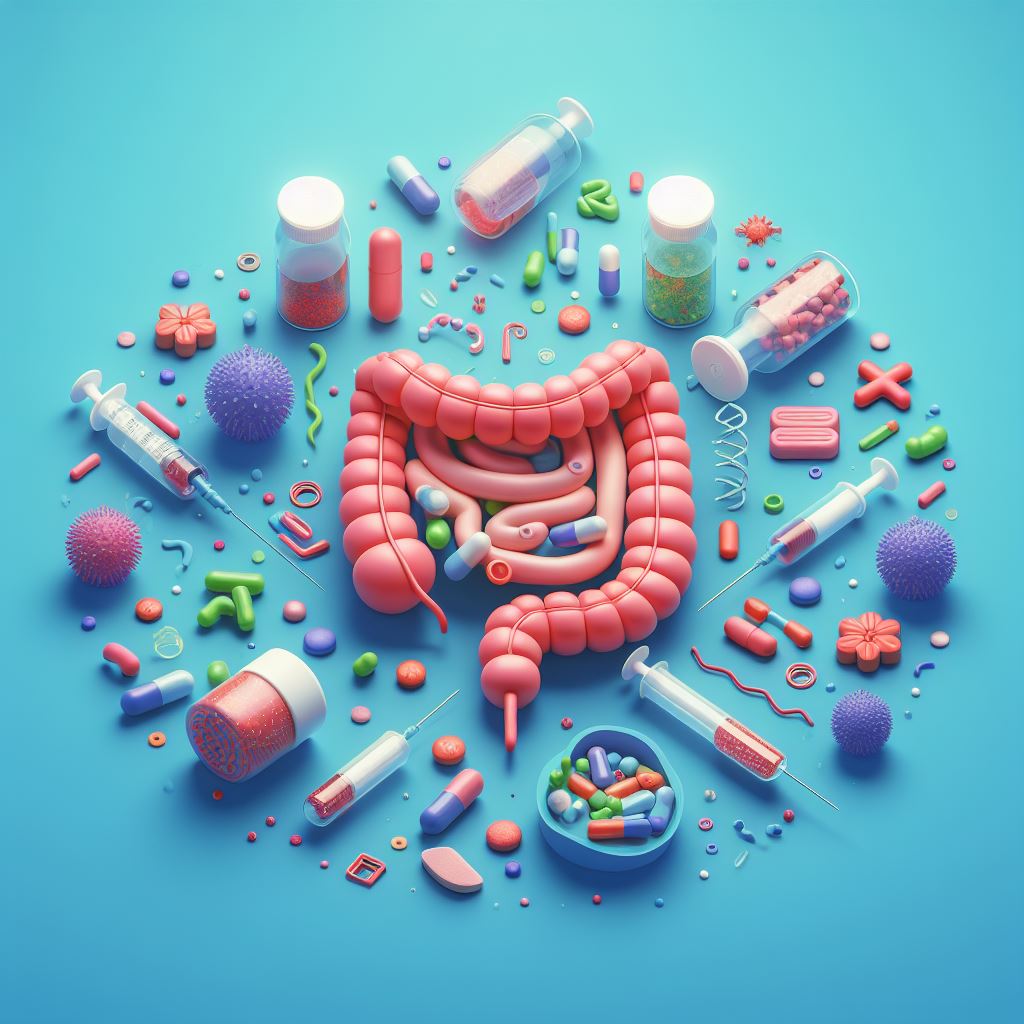When children in low- and middle-income countries experience acute watery diarrhea, their gut microbiome goes through significant changes. Antibiotics are often prescribed to help them recover, but how these medications impact the gut microbiome during recovery has been unclear. A recent study conducted in Vietnam aimed to shed light on this topic by examining the gut microbiota of children with acute watery diarrhea and observing the effects of antibiotic treatment.
What Did the Study Find?
- Changes During Recovery: Regardless of whether they received antibiotics or not, children recovering from diarrhea showed similar patterns in their gut microbiota. They experienced reductions in certain bacteria like 𝘚𝘵𝘳𝘦𝘱𝘵𝘰𝘤𝘰𝘤𝘤𝘶𝘴 𝘢𝘯𝘥 𝘙𝘰𝘵𝘩𝘪𝘢, while others like 𝘉𝘢𝘤𝘵𝘦𝘳𝘰𝘪𝘥𝘦𝘴/𝘗𝘩𝘰𝘤𝘢𝘦𝘪𝘤𝘰𝘭𝘢, 𝘓𝘢𝘤𝘩𝘯𝘰𝘴𝘱𝘪𝘳𝘢𝘤𝘦𝘢𝘦, 𝘢𝘯𝘥 𝘙𝘶𝘮𝘪𝘯𝘰𝘤𝘰𝘤𝘤𝘢𝘤𝘢𝘦expanded. These changes are part of the body’s natural response to recovering from diarrhea.
- Impact of Antibiotics: Antibiotic treatment slowed down the recovery process of the gut microbiota. It delayed the increase in diversity of gut bacteria, leading to distinctive patterns of taxonomic change. For example, antibiotics caused a temporary increase in 𝘌𝘯𝘵𝘦𝘳𝘰𝘤𝘰𝘤𝘤𝘶𝘴 species, which are known to proliferate after antibiotic exposure. However, this overabundance was transient and decreased significantly by the second week.
- Selective Effects: Antibiotics had selective effects on certain bacteria. For instance, 𝘉𝘪𝘧𝘪𝘥𝘰𝘣𝘢𝘤𝘵𝘦𝘳𝘪𝘶𝘮 𝘱𝘴𝘦𝘶𝘥𝘰𝘤𝘢𝘵𝘦𝘯𝘶𝘭𝘢𝘵𝘶𝘮 which contributes to gut health, was particularly susceptible to antibiotics and experienced a reduction in abundance. On the other hand, antibiotics led to the expansion of 𝘌𝘯𝘵𝘦𝘳𝘰𝘤𝘰𝘤𝘤𝘶𝘴 species, which have complex virulence traits and can potentially transfer antibiotic resistance genes to other bacteria.
- Species-Level Differentiation: Antibiotics also influenced the gut microbiota at the species or strain level. For example, certain 𝘉𝘢𝘤𝘵𝘦𝘳𝘰𝘪𝘥𝘦𝘴 species increased after antibiotic treatment, while others decreased. This variability could be attributed to differences in mucin-degrading capability and antibiotic resistance profiles among bacterial species.
What Does This Mean?
This study highlights the impact of antibiotics on the gut microbiota during recovery from diarrhea in children. While antibiotics may help treat the underlying infection, they can also disrupt the balance of gut bacteria, potentially affecting gut health in the long term. Understanding these dynamics is crucial for optimizing treatment strategies and minimizing the unintended consequences of antibiotic use. In the future, more research is needed to explore how different antibiotics and dosages may impact the gut microbiota and to develop strategies to mitigate these effects while still effectively treating infections.
Link to the article : https://tinyurl.com/637wczr2
